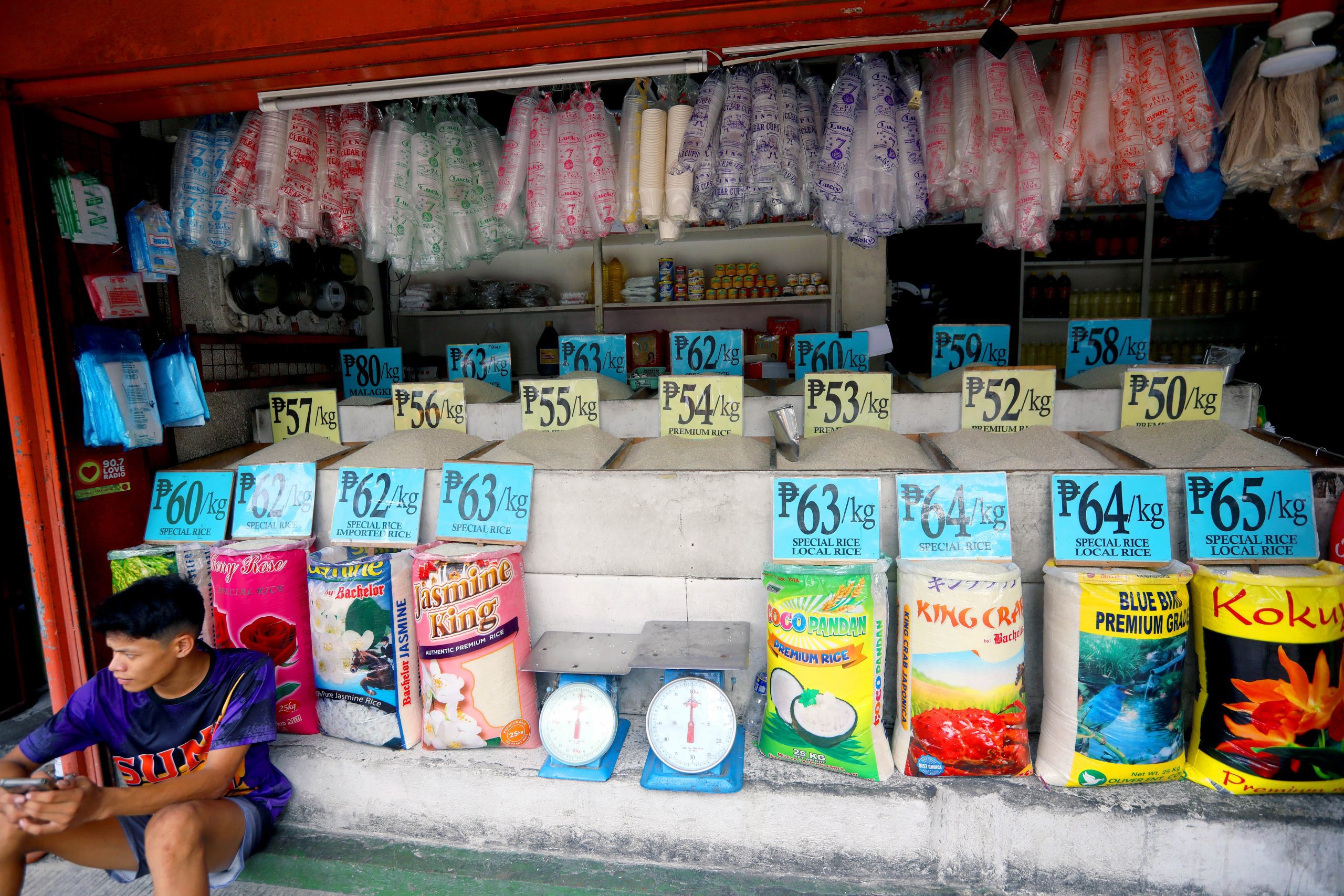Business and Economy
PH average inflation decelerates to 3.2% in 2024

FILE: ADJUSTMENT. Various rice varieties sell between PHP50 and PHP80 at a retail store in San Andres, Manila on Monday (May 6, 2024). (PNA photo by Yancy Lim)
By Anna Leah Gonzales, Philippine News Agency
MANILA – Inflation settled at 2.9 percent in December last year, bringing the 2024 average inflation rate to 3.2 percent, well within the government’s 2 percent to 4 percent target, the Philippine Statistics Authority (PSA) said.
In a briefing on Tuesday, National Statistician Dennis Mapa attributed the downtrend in the annual average inflation to the lower increase in the index of food and non-alcoholic beverages at 4.4 percent in 2024 from 7.9 percent in 2023.
Food inflation, in particular, decelerated from 8 percent in 2023 to 4.5 percent last year.
According to Mapa, rice inflation also slowed to 0.8 percent, the lowest since January 2022.
“Iyong inflation rate sa bigas ay bumababa na. In fact, baka mayroon tayong expectation na maging negative na ‘yong inflation sa rice sa January (The rice inflation rate is going down. In fact, we expect negative rice inflation in January). That’s part of the good news,” he said.
The lower annual average inflation of housing, water, electricity, gas, and other fuels at 1.7 percent in 2024 from 4.9 percent in 2023, also contributed to the downtrend in 2024’s overall inflation.
Except for education services, the indices of other commodity groups recorded a downtrend in their annual average inflation in 2024 compared with 2023, with financial services recording an average decline of 0.6 percent in 2024 from a zero percent average inflation in 2023.
“The 3.2 percent average inflation rate in 2024 is a significant improvement from the 6 percent figure in 2023. Despite the risks we encountered throughout the year, our combined efforts to temper inflation have largely been successful. We will build upon this momentum as we commit to keep the inflation rate within our target range in 2025,” National Economic and Development Authority (NEDA) Secretary Arsenio Balisacan said in a separate statement.
“In pursuit of price stability, the Bangko Sentral ng Pilipinas maintains a calibrated approach to its monetary policy easing while the relevant agencies continue to pursue measures to ensure adequate food supply and affordable prices.”
NEDA noted that the government would continue to ramp up efforts to ensure water and food security amid climate risks.
The Philippine Atmospheric, Geophysical, and Astronomical Services Administration (PAGASA) expects La Niña conditions to prevail until February, while two to eight tropical cyclones are expected to develop from January to June this year.
According to NEDA, the Department of Social Welfare and Development will expand the reach of its Local Adaptation to Water Access and Breaking Insufficiency through Nutritious Harvest for the Impoverished projects to 323 cities and municipalities across 67 provinces by 2025.
The rice sector’s resilience is also expected to be enhanced with the recent amendment of the Agricultural Tariffication Law under Republic Act 12078.
The funds allocated for the Rice Competitiveness Enhancement Fund increased to PHP30 billion from PHP10 billion annually until 2031.
To further support the hog industry’s recovery, the NEDA-chaired Inter-Agency Committee on Inflation and Market Outlook and the Economic Development Group recommended that the Department of Agriculture facilitate the timely and continuous withdrawal of frozen pork stocks in cold storage and for the Food and Drug Administration to fast-track the approval of African swine fever vaccines for commercial use.
NEDA said the Energy Regulatory Commission also directed all private distribution utilities, including the Manila Electric Company (Meralco), to refund unspent regulatory reset fees collected from consumers.
The total refund is estimated at PHP1.18 billion.
“As we enter 2025, we remain optimistic about curbing inflation through strategic, timely, and proactive measures. At the same time, we are intensifying efforts to improve productivity, encourage innovation, and build resilience toward ensuring food security and protecting consumers’ purchasing power. This will enable us to foster stronger and more inclusive economic growth, allowing Filipinos to move closer to realizing a matatag, maginhawa, at panatag na buhay,” Balisacan said.



























